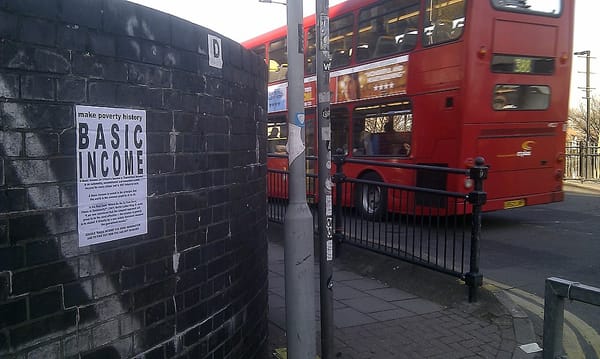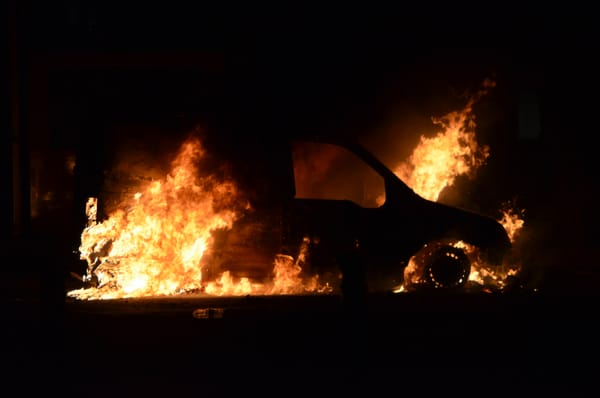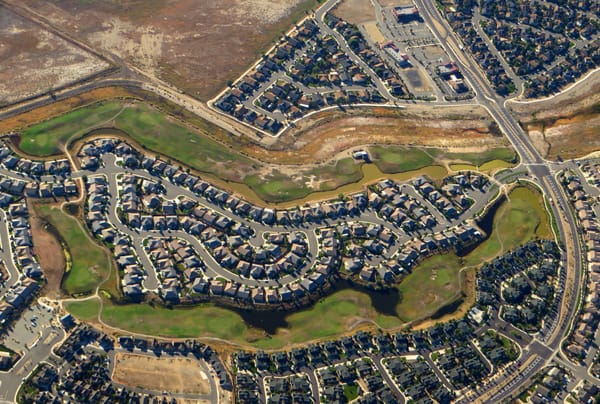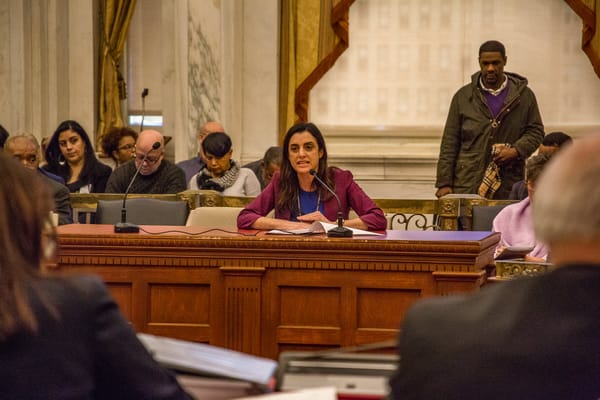A Canadian Perspective on Freedom and Gun Ownership in America
How the proliferation of guns in private life leads to draconian restrictions in public life
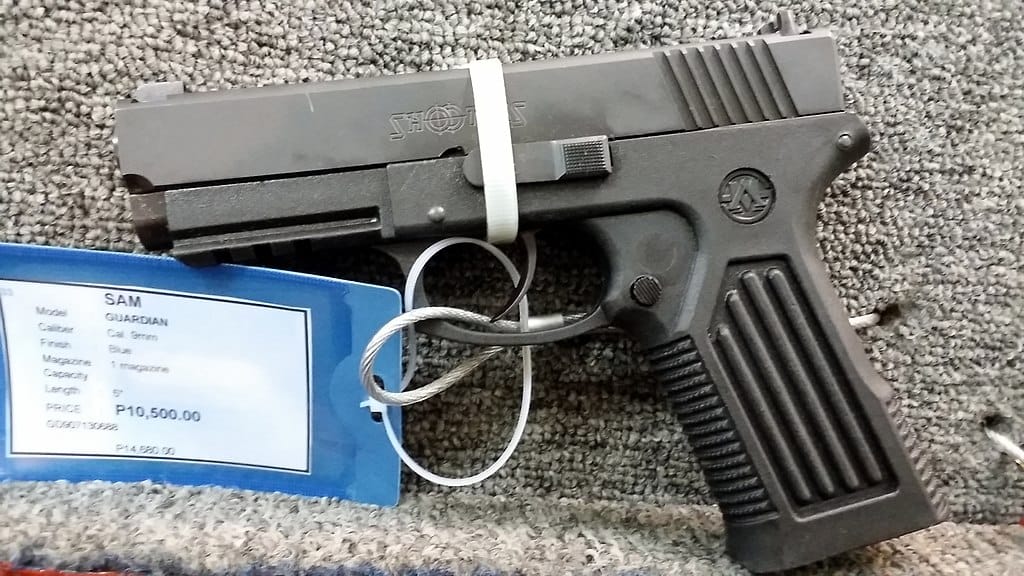
As a Canadian who spends a lot of time in American cities, you don't notice a huge cultural difference. I like to point out to people that I spent 2016 primary season in Texas and general election season in Ohio, and I saw almost no evidence that there was an election. It's a hyper-polarized country, but it's easy to miss since most people don't wear their politics on their sleeves.
But now and then, you're reminded of one key difference: guns. The specter of gun violence hangs over American life. I suspect it’s more visible to outsiders, unaccustomed to the knowledge that any random stranger might own a gun. I know as well as anyone else that getting shot is statistically unlikely—especially as a white man. Even less likely coming from a stranger. But there is that extra layer of risk in every situation. You just never know who is armed—especially in red states.
This extra layer of risk has never been starker to me than when I visited Orlando recently. In the wake of an uptick in gun violence, the city essentially turned downtown into an open-air airport. Every bar operating after 10pm has to have a metal detector. Larger bars need to pay for an on-call officer (who doesn't actually show up unless they need him). You want a beer? Spread em’ and submit to the wand.
I had no idea this policy existed until I tried to get into a lounge. I'd seen the jacked-up security guards outside of the small number of clubs actually operating in Downtown Orlando (there was very little happening for a Thursday night). I thought maybe it was just a thing nightclubs did. Then I got denied entry into one place because I had a four-pack from a brewery I’d just visited. I tried to joke it off with the guy, then I realized there's no way I'd be able to get away with that if I wasn't white. And the guard knew it too. Fair enough. I'll try my luck elsewhere.
The next place I tried, the guards explained the policy to me and apologized profusely before giving me a light wave with the wand. It was pretty clear I was getting off easy. It still felt eerie. No one would ever ask me to bend and spread to get a beer in Canada. We'd protest that we live in a free country, not a police state.
I was already fully aware that metal detectors are increasingly used in places like high schools. But, for obvious reasons, I haven't experienced this. It's abstract. I guess I shouldn't whine that I have to submit to the same rules as high school students. But it's jarring. This sort of thing doesn't really happen in countries that aren't swimming in semi-automatic weapons. You have to be an outsider to really see it, I think.
I don't know precisely what triggered this change. I asked if it was about the Pulse shooting. Bartender said the change was too recent for that. He noted there have been a number of shootings downtown but not actually in bars between around 1:30 and 3am (in other words, just as bars are closing). He said that politicians like to blame downtown for violence, so they don't fuss over the details.
I can see how this level of clampdown is more likely in Orlando than other places. After all, their bread and butter is tourists transiting through to Disneyland. They need to keep a family friendly image. But they do so at the expense of downtown businesses. Of course, maybe instead of blaming the city we should blame the state for its gun laws. Or the federal government. After all, you don't see this kind of overreaction in Canada.
Take my Toronto neighborhood. There was a high profile shooting across the street from a safe injection site (which most people probably didn't even realize was a safe injection site). An innocent bystander was shot and killed in broad daylight by someone tangentially connected to the site (his girlfriend worked there). I happened to walk by just after. Had I not procrastinated on picking up milk, I might have walked right by as it happened. Hell, I might have taken the bullet.
Naturally, people were on edge for a few weeks. It got a lot of press, and people called for the safe injection site to be closed. Within a few weeks, we were over it. People stopped glancing at the site as they walked by, and the sidewalk ballet returned. Life went on, in large part because people understand how rare this is in Canada – particularly in boujee urban neighborhoods.
There's freedom in knowing that few, if any, people passing you on the street have the capacity to blow your head off. You don't need to have your guard up. Thomas Hobbes famously described the state of nature as a war of all against all. That can be a relatively stable equilibrium, as some game theorists have posited. But how free are you really, if you feel the need to sleep with a gun under your pillow to feel safe?
Indeed, this is why political theorists like Hobbes and Max Weber argued for a territorial monopoly on the legitimate use of force. In the Hobbesian schema, the only way out of the "nasty, brutish, and short" condition of life in the state of nature was to outsource legitimate violence to the state. The state doesn't sleep, and it has the capacity to quash disorder—for the most part. Unless, of course, you've got a non-trivial number of people building personal arsenals. Indeed, American lives are on average a bit shorter than in other developed countries. Guns are probably part of the explanation. Regular shootings are bound to drag down average lifespans, at the margin.
This is roughly the state of things in Canada. Few people own non-hunting firearms. The idea of owning a gun to personally deter crime is nearly unthinkable. I think one of my Canadian friends may own a gun, but that's more the exception than the rule. By contrast, I'm pretty sure I have at least two American friends who are reluctant firearm owners, on top of the enthusiasts I know. The reluctant owners feel compelled by the enthusiasts. The freedom to carry creates a perceived obligation to carry. In other words, one group's decision to flex their rights impairs the ability of the other group to make their own choices.
Am I saying that Canadians are freer than Americans? That's complicated. I'm not sure how to objectively weigh one set of freedoms against another. But I'm comfortable saying that gun ownership isn't a straightforward freedom issue. Personally, I feel freer not viewing my fellow citizens as potential threats. Freedom is, at the margins, in the eye of the beholder.
Featured image is a handgun at a gun show, by RoyKabanlit

